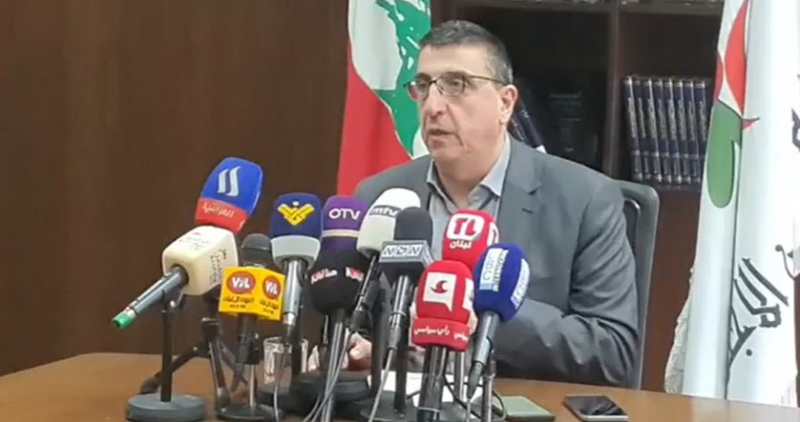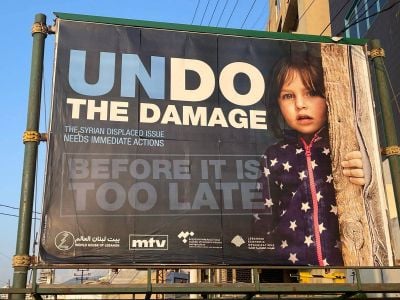
Hector Hajjar during a press conference. (Credit: NNA)
BEIRUT — Lebanese Minister of Social Affairs Hector Hajjar presented a roadmap on Tuesday to address the conditions surrounding the large Syrian population in the country, the majority of which are refugees from the catastrophic 2011 Syrian civil war.
Hajjar's plan, announced during a ministerial committee meeting headed by caretaker Prime Minister Najib Mikati at the Grand Serail, includes conducting a "comprehensive survey" of Syrians in Lebanon, to "determine who meets the status of displaced or not," according to a report from the state-run National News Agency.
Lebanon currently has 784,884 registered Syrian refugees with the United Nations High Commissioner for Refugees (UNHCR), according to figures from December 2023. The official estimate remains around 1.5 million including those not registered with UNHCR, making Lebanon the country with the highest population of refugees per capita in the world. Nintey percent of Syrian refugees in Lebanon live in extreme poverty, according to the international charity, Human Rights Watch.
A large number of Lebanese politicians have increasingly called for Syrians to return to their homeland, claiming Syria is now safe enough for them to do so. Human rights organizations widely criticize this assessment, citing the detention, torture, abuse and forced disappearance of Syrians who have attempted to return.
Hajjar's proposal calls for funding to be allocated to help who he describes as the "actual displaced" population, in proportion to their "numbers and needs." He adds that those who fall outside of this framework should not "benefit" from the rights for displaced people."
The plans are a follow up to the National Strategy Action Plan for Social Protection, launched February last year to aid Lebanon's recovery from a severe economic crisis, by taking steps towards comprehensive social reform.
The strategy is the result of extensive efforts initiated in 2019 by Lebanon’s Inter-Ministerial Committee on Social Policy, led by the Ministry of Social Affairs, with funding from the European Union and the Government of the Netherlands and technical support from the ILO and UNICEF.
This would, under his proposal, involve "removing all tents" and "residential gatherings" of Syrians who do not meet "the criteria of a displaced person." Those who are not deemed to be displaced will either be resettled in a third country, or be returned to their home country, the proposal suggests. Lebanese politicians of all stripes have regularly called for the immediate repatriation of Syrians, whom they blame for Lebanon's multi-faceted economic crisis.
Hajjar also requested "assistance from the international community" to secure Lebanon's maritime and land borders and "prevent transgressions." According to Hajjar, "it was decided to hold a meeting of the military council" to link the different parts of the roadmap and set a timeline.
